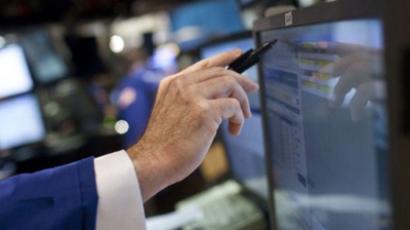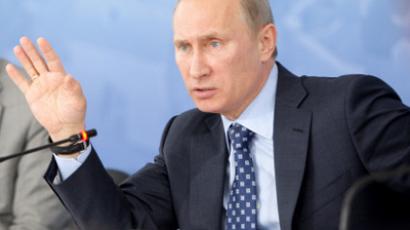“US debt deal is not a victory”
Emergency legislation to avoid an economy-rattling government default sped through the US House of Representatives on Monday night after weeks of fierce struggle and just a day before the deadline for action.
Financial writer Peter Bild told RT that despite the compromise being reached in Washington, no one seems to be calling the deal a victory.“It is not a victory for anybody. Republicans are not happy and least happy of all are Tea Party component of the Republicans, who wanted to see the end to all new indebtedness by the US,” he said. “The Democrats, including the president, wanted to see richer Americans making contribution to the deficit reduction. That could mean higher taxes for well-to-do people. What we have, though, is the best compromise anybody could reach,” Bild added.According to Bild, the passing of the deal cannot scare investors away from America as most investors in the US do not have anywhere else to go.“They have large amounts of money they need to park somewhere until they can use it home, and that is of course above all the Chinese, some of the richer Arab nations and Russia,” he explained. “They are not happy seeing the dollar in which they are investing possibly inflating and losing value. But in the short term there really is nothing else they can do because if they take their money out, they can’t take it all out at once, what is left is going to be downgraded even further. So it is a case of shooting yourself in the foot if you do the logical thing,” stated Bild.Despite the debt deal, which seems only a temporary solution, new debt continues to pile up in America. Bild told RT it is impossible to say for how long the US will continue to raise the debt ceiling, but whatever the answer, the consequences will be grim.“We could see another freeze-up of the world banking system the way we did in 2008 with who-knows-what impact on the world economy,” Bild maintained.
However, Patrick Minford, an economics professor from the Cardiff Business School, has told RT the world economy will have a real problem if America goes down “Obama’s road” and thus loses its technological leadership.“America is going through a bit of a crisis in terms of whether it wants to go down the Obama road of more benefits, higher taxes, and become a kind of just another social democracy, or whether it’s going to go back towards its traditional role of a low-tax economy with fast innovation and technological leadership,” he said.Minford believes this deal has signaled that Obama’s strategy is going into reverse, so the US is most likely to retain its leadership.“What we can’t afford to lose is America’s dynamism as a technological leader and innovator in the economics of world capitalism,” he added. “That’s what we can’t afford to lose. It’s not a question of imperialism or things like that. It’s a question of economic dynamism and growth.”














